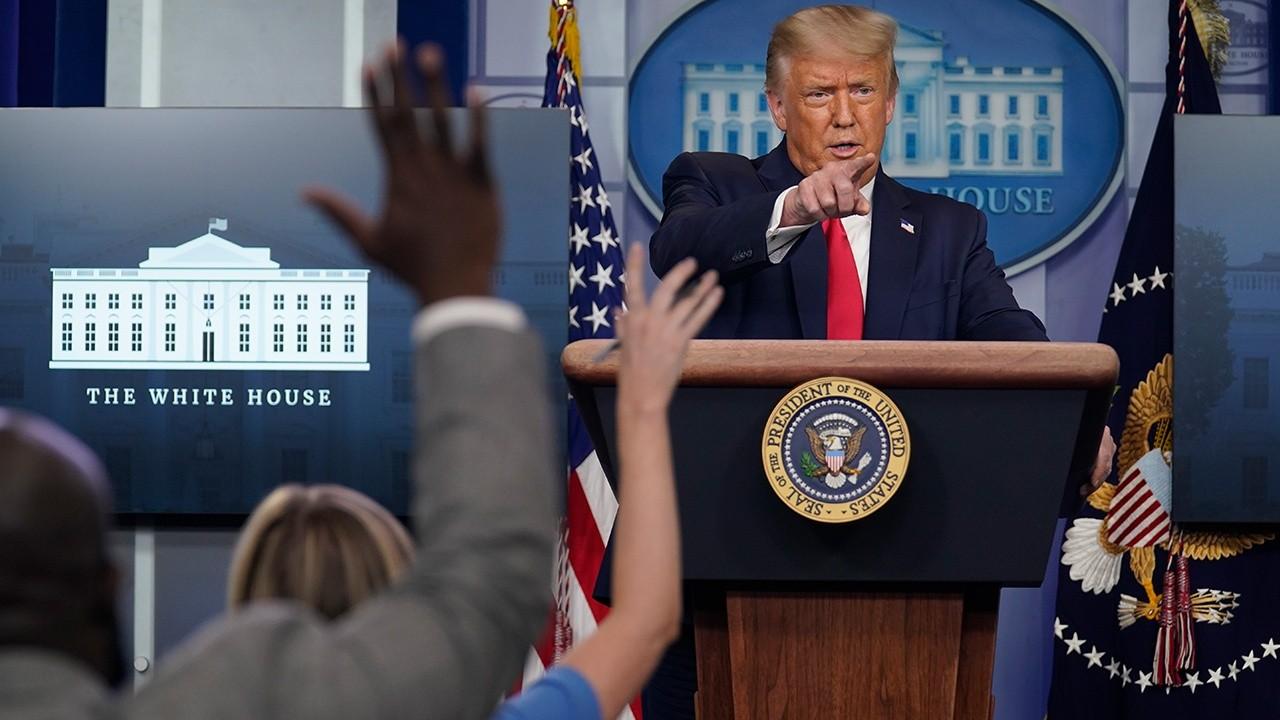A second stimulus check is likely — and 26M more people might get cash this round
HEALS Act attempts to rectify frequent criticism of first $2.2T relief package
Senate Majority Leader Mitch McConnell on Monday rolled out Republicans' plan for another coronavirus relief package, which would send a second $1,200 payment to most Americans.
While the amount of the payment included in the HEALS Act — the Health, Economic Assistance, Liability Protections and Schools Act — is the same as the CARES Act, there are some key changes that would expand eligibility to an estimated 26 million Americans, according to one estimate from the Tax Foundation.
CALCULATE HOW MUCH MONEY YOU'D RECEIVE FROM THE SECOND STIMULUS CHECK HERE
The HEALS Act attempts to rectify a frequent criticism of the first $2.2 trillion relief package. Under the CARES Act, Americans only received an extra $500 for their dependents if they were under the age of 17 — excluding, among others, millions of college students and disabled dependents.
But the latest proposal modified the stimulus checks so that families with dependents over the age of 17 will be able to receive the extra $500. For instance, a married couple with two children could receive up to $3,400 under the HEALS Act.
WHITE HOUSE, REPUBLICAN PROPOSAL CUTS JOBLESS AID FROM $600 TO $200
"Unlike under the CARES Act, where the additional $500 was limited to taxpayers with a dependent child under 17, the additional $500 will now be provided to taxpayers with dependents of any age," said a summary of the proposal released by Senate Finance Committee Chairman Sen. Chuck Grassley.
It's unclear whether the HEALS Act has a limit on how many dependent payments a single household can receive. The House-passed HEROES Act in May capped them at three, or an additional $3,600, meaning the maximum amount of money one household could receive was $6,000 (it increased the amount of money per child to $1,200).
About 96 million dependents would be eligible for a payment, 26 million more than the number of dependents eligible under the CARES Act, according to the Tax Foundation.
Other than changes to the dependents, the necessary qualifications for receiving the money are nearly identical to the first round of government aid.
GET FOX BUSINESS ON THE GO BY CLICKING HERE
Individuals who earn a gross adjusted income of up to $75,000 and couples earning $150,000 would receive the full $1,200 or $2,400 payments, respectively. For higher earners, the checks will be reduced by $5 for every $100 in income and phased out entirely at $99,000 and $198,000.
Individuals who have no income and federal benefits recipients are still eligible for the full check amount.
Most Americans will not be required to take any action in order to receive the money. The IRS will use their 2019 tax return if filed or their 2018 return as an alternative.
At the beginning of June, the IRS said it had distributed some 159 million payments, worth more than $267 billion. Of those checks, 120 million were sent via direct deposit, 35 million by check and 4 million were made in the form of a prepaid debit card.
CLICK HERE TO READ MORE ON FOX BUSINESS
Nearly half of all Americans have reported the loss of income from March through the beginning of July, according to Census data, highlighting the financial stress that households are facing as the pandemic and economic lockdown triggers the worst downturn since the Great Depression.




















